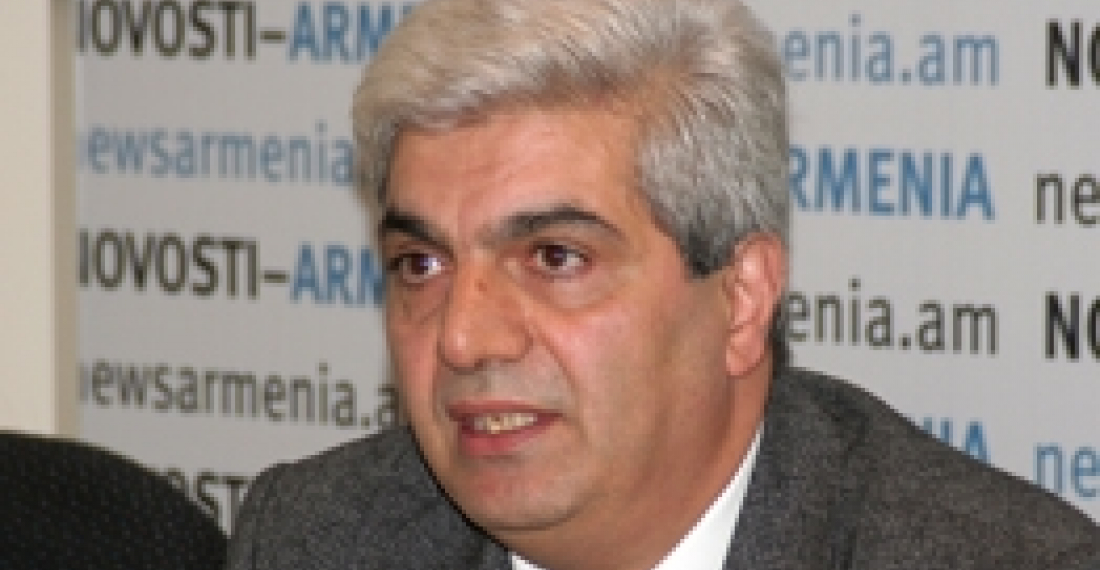Critical stage has come in the Karabakh negotiating process because of Ramil Safarov's pardoning, political expert, Stepan Grigoryan, said at today's press-conference.
He said that after such an action of the Azerbaijani President Ilham Aliyev the world community has clearly understood that official Baku is demonstrating its indifference to all the instances of EU and NATO, and the OSCE MG co-chairmen expressed true concern on the occasion. "The negotiating process is developing on the basis of the Madrid principles which may offer million options for the Karabakh conflict settlement. But after the Armenophobia
demonstrated by Baku, the option about an administrative subordination of the NKR to Azerbaijan is ruled out. It is clear to everybody that killing of an Armenian is not a crime for Baku and cannot be punished. For this reason, it is simply inadmissible to give the Armenian populated Nagornyy Karabakh to Azerbaijan", - he said.
Grigorian thinks it is not expedient if the Armenian party leaves the negotiating process. He said that the Armenian parties have to gain from the created situation and demand from the OSCE MG co-chair states strict statements about their stance on the matter. He also added that Armenia should demand strict position from the European Parliament too. "Although High Representative of the European Union for Foreign Affairs and Security Policy, Catherine
Ashton, came forward with a statement, however, it was practically vapouring, since the stance of the EU was not fixed there and an anti-human behaviour of Azerbaijani authorities was not condemned in any way", - he said.
Political expert: Critical stage has come in the Karabakh negotiating process because of Ramil Safarov's pardoning
Political expert: Critical stage has come in the Karabakh negotiating process because of Ramil Safarov's pardoning







